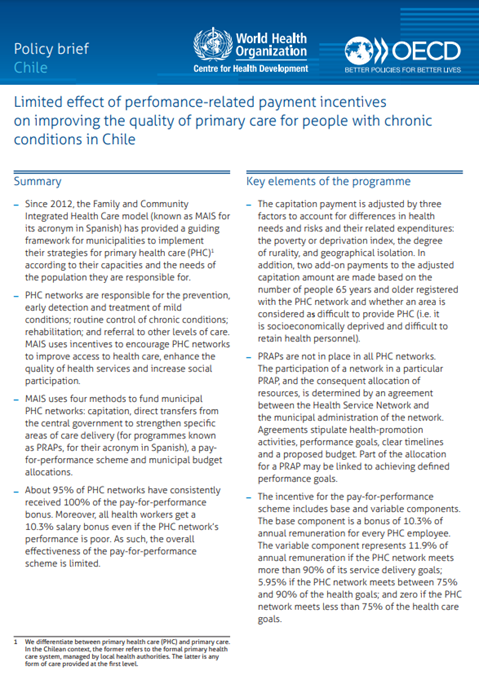Chile case study policy brief
Limited effect of perfomance-related payment incentives on improving the quality of primary care for people with chronic conditions in Chile

Overview
Since 2012, the Family and Community Integrated Health Care model (known as MAIS for its acronym in Spanish) has provided a guiding framework for municipalities to implement their strategies for primary health care (PHC)1 according to their capacities and the needs of the population they are responsible for.
PHC networks are responsible for the prevention, early detection and treatment of mild conditions; routine control of chronic conditions; rehabilitation; and referral to other levels of care. MAIS uses incentives to encourage PHC networks to improve access to health care, enhance the quality of health services and increase social participation.
MAIS uses four methods to fund municipal PHC networks: capitation, direct transfers from the central government to strengthen specific areas of care delivery (for programmes known as PRAPs, for their acronym in Spanish), a payfor-performance scheme and municipal budget allocations.
About 95% of PHC networks have consistently received 100% of the pay-for-performance bonus. Moreover, all health workers get a 10.3% salary bonus even if the PHC network’s performance is poor. As such, the overall effectiveness of the pay-for-performance scheme is limited.
